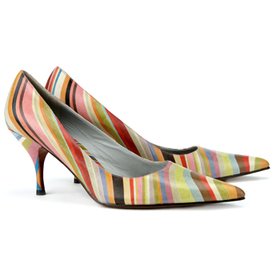Babies and Bomb Shelters
I am in no way an historian. My personality doesn't lend itself toward all the methodical research required. However, I am a therapist. Since 2005, I have been working with children in a variety of different school settings. And both by training and by personal experience, I know a little bit about intergenerational trauma. As I watch the current chaos unfold in Ukraine, it's impossible for me to not think of the millions of children whose lives will forever be altered. What will happen to them? What will happen to their futures? How much trauma and chaos can they endure? If they even survive?
About a week ago I saw a picture of an hours old baby named "Mia" on Instagram. According to the poster, she had just been born in a subway station that was suddenly turned into a makeshift bomb shelter. It was presented as an image of hope. But what will happen to this baby girl? She will be born into what? Destruction? Poverty? Russian despotic rule? How many of her relatives will survive the war?
I imagine her mother. I am am guessing she and most of the mothers giving birth in the dark on a blanket in the subway station with hundreds of other dirty, sick and frightened people were not picturing this "birth experience" when they first learned they were pregnant nine or eight months ago. I so hope these newborn babies survive into their childhood. But even if they do (and oh how we hope they all do), how will their lives be forever altered?
Intergenerational trauma is defined much as one would guess. Specifically, it is trauma that gets passed down to the next generation (and often those that come afterward as well). It was first officially identified by those who studied the children of Holocaust survivors. Decedents from those enslaved clearly also can experience it, as do other groups who have been systematically abused. But if one even thinks about it for even an minute, it makes sense that many individuals also suffer from its effects. In fact, many scientists now believe that not only can humans pass on trauma from previous generations via our emotions, environment and parenting, but even via our DNA. Not only do we experience and manage our own trauma, but we know that it can also be passed on to our children and to generations well beyond.
My father was like one of those Ukrainian babies born into war and chaos. He was born in late December 1944, at the end of World War II, just as the Russians were approaching Budapest, Hungary for a final battle to finish off the Nazis. It's known as the Siege of Budapest. Hungarians were desperately hoping that Americans would come and save them, but that scenario didn't work for the greater anti-German plan. The Hungarians fought valiantly much as the Ukrainians are now, but eventually Russian power overcame them, and Budapest finally surrendered on February 13th, 1945.
As the Russian bombed, murdered, and raped it's way toward the capital city, my father was born in the basement of a bombed out hospital. A few other women had gone there to try and give birth. No doctors were left, but there was some equipment, and I assume, it just felt like the safest place to go to most of them. My grandmother arrived with her mother and older sister to help her. My father was born. The story told was that many of the other new mothers could not produce milk for their babies, but my grandmother could. Not only did she feed my father, but she produced breast milk for some of the other babies there as well. Light, hope, and perseverance in the darkness of war.
It sounds like an heroic and happy ending story. And it many ways it was. My father grew up. In 1949, he and and my grandmother were later able to escape communist Hungary, and eventually my father ended up attending MIT at age 16. He married my mother, had two children, and started up his own very successful business. An American success story one could say. But my father was never able to shake that baby who was born among bombs. Nor was he able to remove the trauma of everything that happened afterward.
My aristocratic grandparents were not used to taking care of themselves. They were used to butlers, country homes, and nannies. They too suffered immensely in the war, and they were just not able to care for a child while simultaneously saddled by the trauma of war. Without the complex safety net that that they were so used to relying on, parenting fell by the wayside. My father often had to fend for himself--he was often left outside by himself for hours on end as one or two year old, there wasn't always enough food to eat, and his parents were preoccupied with their own troubles much of the time.
As a result, my intelligent and kind father, really didn't know how to be a person. He certainly didn't know how to be a father. What would he have been like if he had been born into normalcy? Would he have been able to stop searching? Would he have been able to connect better with others? Would he have been able to feel his emotions and actually experience life? And what about me? Would I be more confident? Not have to manage depression? Be a better parent myself? How did those events in the late 1940s continue to affect my life?
I don't know these answers. I have my guesses, but I will never be able to confirm or deny them for sure. My father is dead. Death by suicide at age 62. He wasn't ever able to fully shed those early years of his life. He certainly tried, but I fear it was impossible. The abandonment and fear that developed early on for him got into his core, and he could never get rid of it as much as he tried.
I think of my father, and I want better for the Ukrainian babies and children of 2022. So I send money and buy items on Amazon wish lists, and post a Ukrainian flag on my Facebook profile in solidarity. And hope some of it actually gets to the correct destination and actually helps in some small way. Is that enough? Probably not. But I try.
I want better for those babies and their families, but deep down I know I also want better for myself...and my father. With every dollar I send, I am trying to recover a little piece of myself, but also that baby boy born in in the dark and dirt in Budapest in late 1944 without any sort of clear future or societal safety net. I hope I'm not too late.






